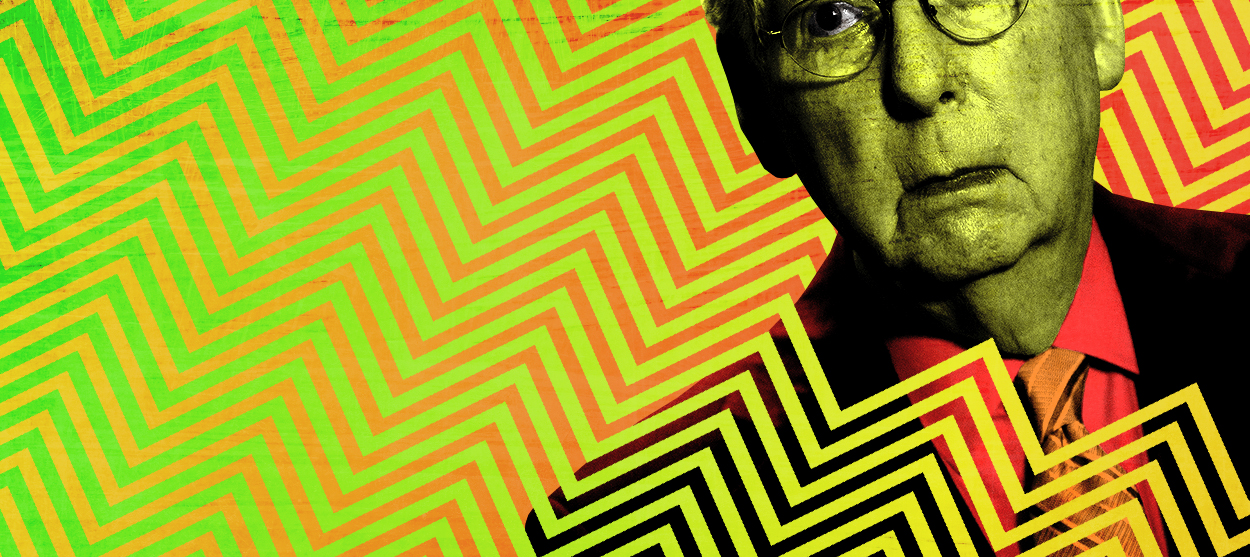A mild defense of Republican hypocrisy on the Supreme Court
This is the reality of judicial politics in the 21st century


A free daily email with the biggest news stories of the day – and the best features from TheWeek.com
You are now subscribed
Your newsletter sign-up was successful
When it comes to the debate over filling the Supreme Court vacancy created by Justice Ruth Bader Ginsburg's death, there is plenty of partisan hypocrisy to go around. You will hear Republicans who four years ago argued such a vote should wait until after the presidential election now call for a speedy confirmation, and Democrats who took the opposite position now demanding there be no approval of anyone President Trump nominates this year.
But underneath it all is a consistent position as both parties recognize the reality of judicial politics in the 21st century. If the Supreme Court is going to function as a social issues super-legislature, and if any justice is going to matter more for what happens on abortion, guns, affirmative action, religious liberty, free speech, and LGBT rights than any 10 senators, then the composition of the court matters.
Anything that would shift a Supreme Court seat from the liberal to conservative bloc or vice versa should be treated no differently than a Senate race that would change partisan control of the chamber. That's why Trump and Senate Majority Leader Mitch McConnell (R-Ky.) are right to want to try to confirm a Ginsburg replacement. And that's why Democrats are right to do everything that the Constitution and Senate rules allow to block that nomination.
The Week
Escape your echo chamber. Get the facts behind the news, plus analysis from multiple perspectives.

Sign up for The Week's Free Newsletters
From our morning news briefing to a weekly Good News Newsletter, get the best of The Week delivered directly to your inbox.
From our morning news briefing to a weekly Good News Newsletter, get the best of The Week delivered directly to your inbox.
Well, not everything.
A nominee is entitled to decent and fair treatment. And while Democrats understandably feel differently, many Republicans believe Merrick Garland was ultimately treated better than Brett Kavanaugh by not having his reputation dragged through the mud, even if only the latter got Senate hearings and ultimately wound up on the Supreme Court.
But Senate Republicans had the same constitutional authority to reject Garland and confirm Kavanaugh as Presidents Obama and Trump had to nominate them in the first place. The same will be true when Democrats retake the Senate majority. Presidents and senators serve for fixed terms and do not lose their constitutional powers before then just because an election is approaching.
Voters have a recourse. If they do not like Republicans rushing to fill Ginsburg's seat, they can vote Trump and several vulnerable GOP senators out of office. If Republicans proceed with another Trump high court nomination, they are assuming all the political risk.
A free daily email with the biggest news stories of the day – and the best features from TheWeek.com
Still, who gets a lifetime appointment to the Supreme Court is of far greater consequence than whether Thom Tillis (R-N.C.) or Susan Collins (R-Maine) is returned to the Senate. There is arguably more at stake in the makeup of the court than there is in which party controls the upper chamber of Congress for the next two years.
History did not begin with Merrick Garland. Senate Democrats voted down Robert Bork. They nearly defeated Clarence Thomas. Half the Democrats in the Senate voted against John Roberts. Only four Democrats voted to confirm Samuel Alito.
Republicans were, if anything, slower to move in this direction than Democrats. After Bork and Thomas, three GOP senators voted against confirming Ginsburg. Nine voted against Stephen Breyer. The first real Republican revolt against an insufficiently conservative nominee was actually against Harriet Miers, a George W. Bush pick. Are we to believe that nominees as conservative as Kavanaugh or Neil Gorsuch would have been approved by a Democratic-controlled Senate?
There are prudential arguments against confirming yet another Supreme Court justice by the narrowest of margins, largely along party lines. Democrats may be tempted to expand the size of the Supreme Court, via so-called court-packing legislation, to get more liberal justices through as soon as they have the power to do so. They could possess that power as soon as early next year.
Even failing that, it has become evident that at least some of Chief Justice Roberts' alliances with the liberal bloc are motivated by a desire to prevent the nation's highest court from being seen as a partisan institution. More partisanship in the confirmation process is unlikely to dissuade him from such dalliances in the future. He may vote with liberals more frequently to reduce the likelihood of court packing coming to fruition. (This is how the threat of court packing worked in the New Deal era.)
At the same time, Senate and presidential candidates who earn your vote by claiming to care deeply about abortion or ObamaCare or some other issue often decided by the courts should not simply give over Supreme Court seats to judges likely to be on the other side without a fight. In a perfect world, the court would be modest, and qualified nominees of both parties would be confirmed. But we do not live in such a world, and there isn't much reason to think Senate Minority Leader Chuck Schumer (D-N.Y.) is any more likely than Mitch McConnell to take us there.
Want more essential commentary and analysis like this delivered straight to your inbox? Sign up for The Week's "Today's best articles" newsletter here.
W. James Antle III is the politics editor of the Washington Examiner, the former editor of The American Conservative, and author of Devouring Freedom: Can Big Government Ever Be Stopped?.
